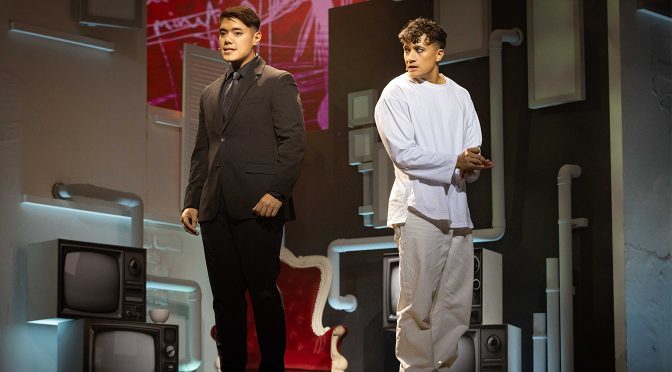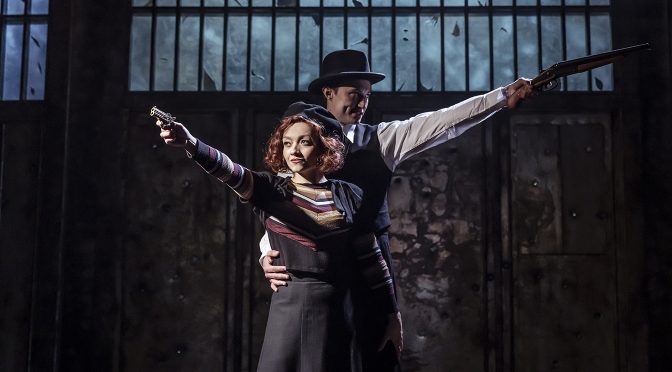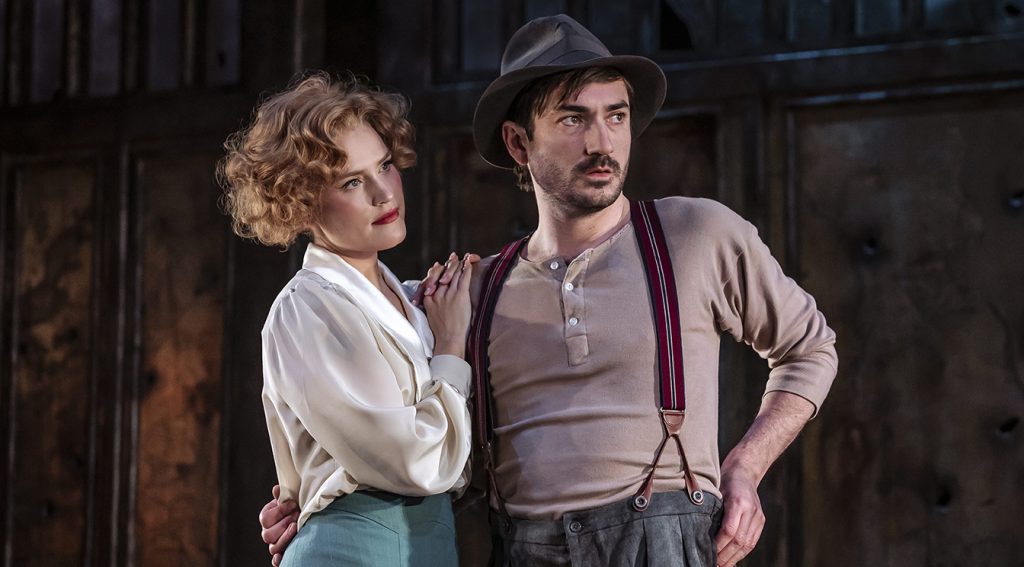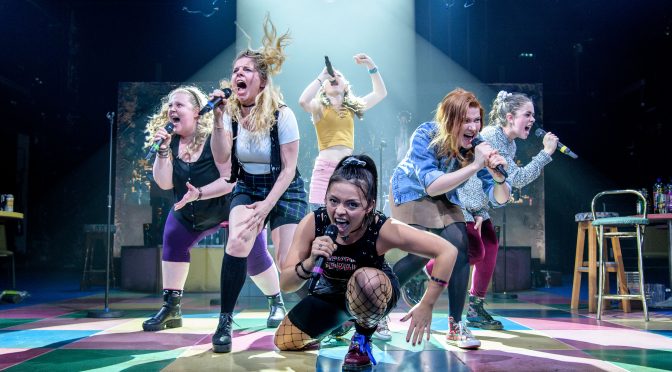There a strong fan base for this project based on Tsugumi Ohba and Takeshi Obata’s manga series. Three shows at the London Palladium sold out quickly – a transfer has been announced – leading to a sense of excitement for the European première of something that promises to be different.
Coming in cold… it’s a mixed bag. The story is good – it’s sold 30 million copies – and the book for the show, from Ivan Menchell, is accomplished. There are strong characters who are admittedly vehicles to raise issues but nonetheless intriguing. A schoolboy called Light, accompanied by a Shinto Kami, can kill people by writing their names in a book. It’s a neat way to raise moral dilemmas. And there’s a detective, the enigmatic ‘L’, tracking down Light for his vigilantism. But the show isn’t as bold as it might be: strong performances and a good atmosphere are its best points.
Concert is a stingy description. The set doesn’t move and there isn’t much choreography, but the lighting design (Ben Cracknell) is advanced, the costumes (Kimie Nakano) good and the characters well developed. Director Nick Winston has focused on his performers and, as a result, the roles are impressively realised by a strong cast.
Joaquin Pedro Valdes sounds great in the lead and shows Light’s arrogance – this hero starts with good intentions, but power goes to his head. Dean John Wilson plays the detective whose motivation seems more intellectual stimulation than justice and is, as usual, excellent. In the middle, often literally, is Ryuk, a supernatural figure who fascinates. This is a great role (performed brilliantly at the Palladium by Adam Pascal) – a real crowd pleaser with an element of danger and humour whose big problem is his sense of boredom!
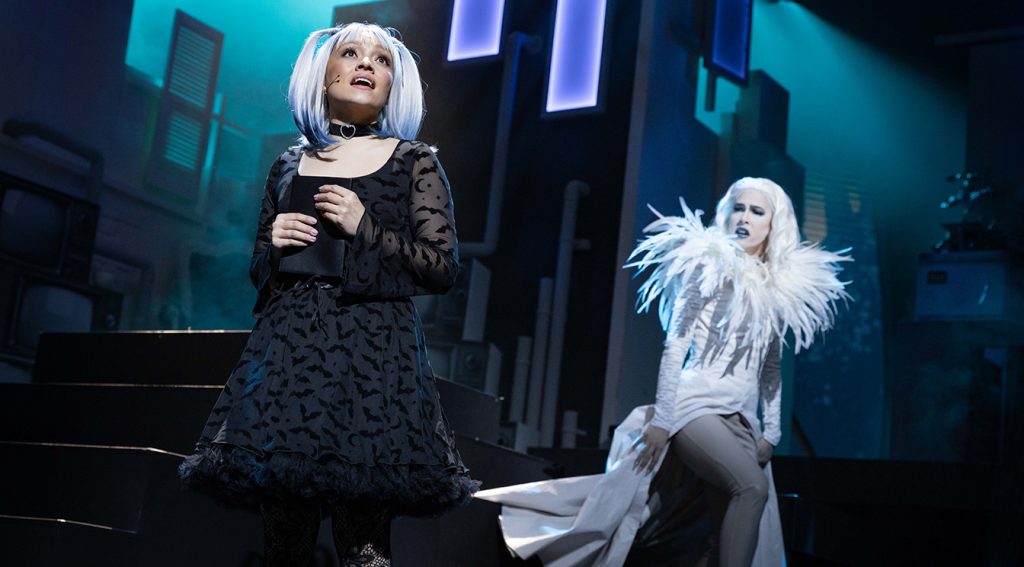
There is less success with two female roles: a pop star called Misa (who falls in love with Light) and another Kami parallel the main story but they do not complement it. Both Frances Mayli McCann and Aimie Atkinson have strong voices, but their songs aren’t as good and their characters are less well written. The scene of Misa’s interrogation is ridiculous – let’s hope that was the intention.
Jack Murphy’s lyrics deserve praise if only for their efficiency – it’s all very clear. And, as for the songs, Frank Wildhorn can write a tune. If sometimes unimaginative, they are often catchy. There is an effortful mix of styles in Death Note so the show overall shouldn’t tire.
A lot of the music is earnest, which works well with the story. But the score sounds American through and through. Maybe that’s better than some kind of appropriation. But it lessens the show’s USP compared to your average musical… and that seems a shame.
Transferring to the Lyric Theatre for six performances, 7-11 September 2023
Photos by Mark Senior

